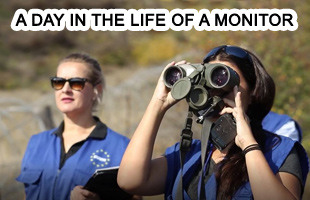 Today, on 10 December, we celebrate Human Rights Day. Standing up for Human Rights, democracy and the rule of law is the silver thread that runs through EU external relations.
Today, on 10 December, we celebrate Human Rights Day. Standing up for Human Rights, democracy and the rule of law is the silver thread that runs through EU external relations. This year we look back on a productive year for the EU in human rights. The EU adopted a Human Rights Strategy to enhance the effectiveness and consistency of EU human rights policy across the full range of its activities. We appointed the first EU Special Representative for Human Rights, Mr Stavros Lambrinidis, to promote human rights through dialogue with third countries as well as international and regional organisations. The EU was also awarded the Nobel Peace Prize in October 2012 in recognition of its work on reconciliation, democracy and the promotion of human rights, which helped extend the area of peace and stability across the continent. It is fitting that the presentation of this prestigious prize comes on the day of the celebration of human rights.
The theme of this years Human Rights Day is inclusion and the right to participate in public life. It is a particularly timely theme in light of the transitions to democracy that we are witnessing worldwide. A number of countries in our neighbourhood such as Tunisia, Libya and Egypt successfully organised democratic elections in the past year, allowing many citizens to vote freely for the first time and offering them an opportunity to participate in the decisions affecting their future. This trend towards democracy was also apparent further afield. After decades of internal repression, dramatic changes are finally taking place in Burma/Myanmar. In Somalia, we welcomed the adoption of a new provisional Constitution and in Sierra Leone, the recent elections were conducted in a peaceful environment.
Yet much remains to be done to support those who risk their lives in support of the fundamental values they believe in and in the hope of a better future for themselves and future generations. Holding elections can only be a first step towards deep democracy in which human rights take root. Rights need to be enshrined in society through law, but also through daily practice. The EU is conscious of renewed efforts by various governments to tighten restrictions on the legitimate activities of NGOs – especially but not exclusively those that receive external funding. The EU is committed to supporting the vital work of civil society. In this context, a European Endowment for Democracy has been established as one concrete expression of the EU’s commitment to support democracy in the Neighbourhood and beyond.
We believe that everyone must be free to exercise their right to equal participation. Women and young people have been at the forefront of many of the democratic movements that we have witnessed this year and have been an inspiration to people around the world. People with disabilities still face obstacles in exercising their right to participate in public life, which must be addressed. The EU is committed to work with governments around the world, through multilateral and international organisations and in a spirit of genuine partnership with civil society to support new democracies and ensure the right to inclusion and participation in public life can become a concrete reality for all.


